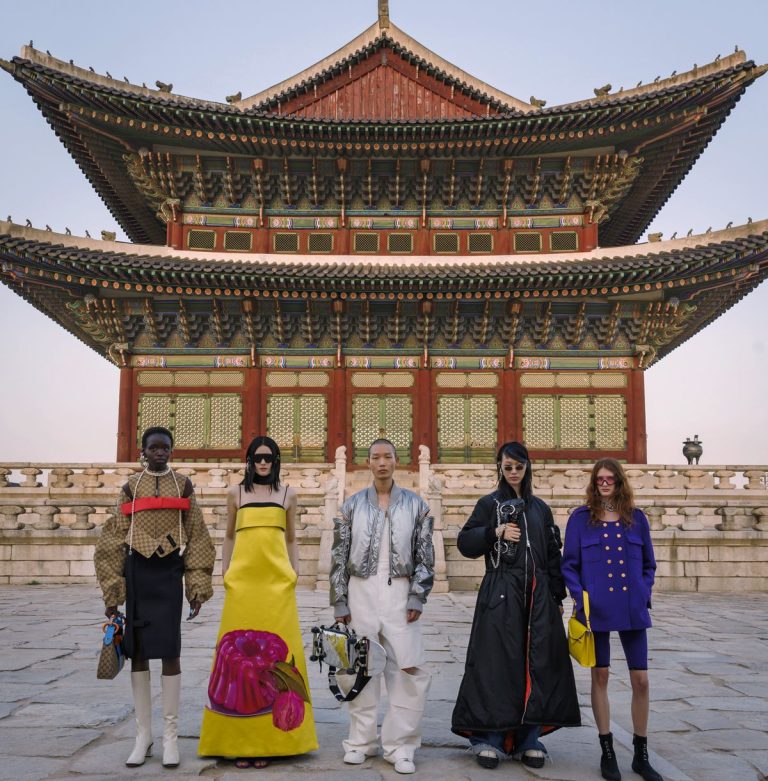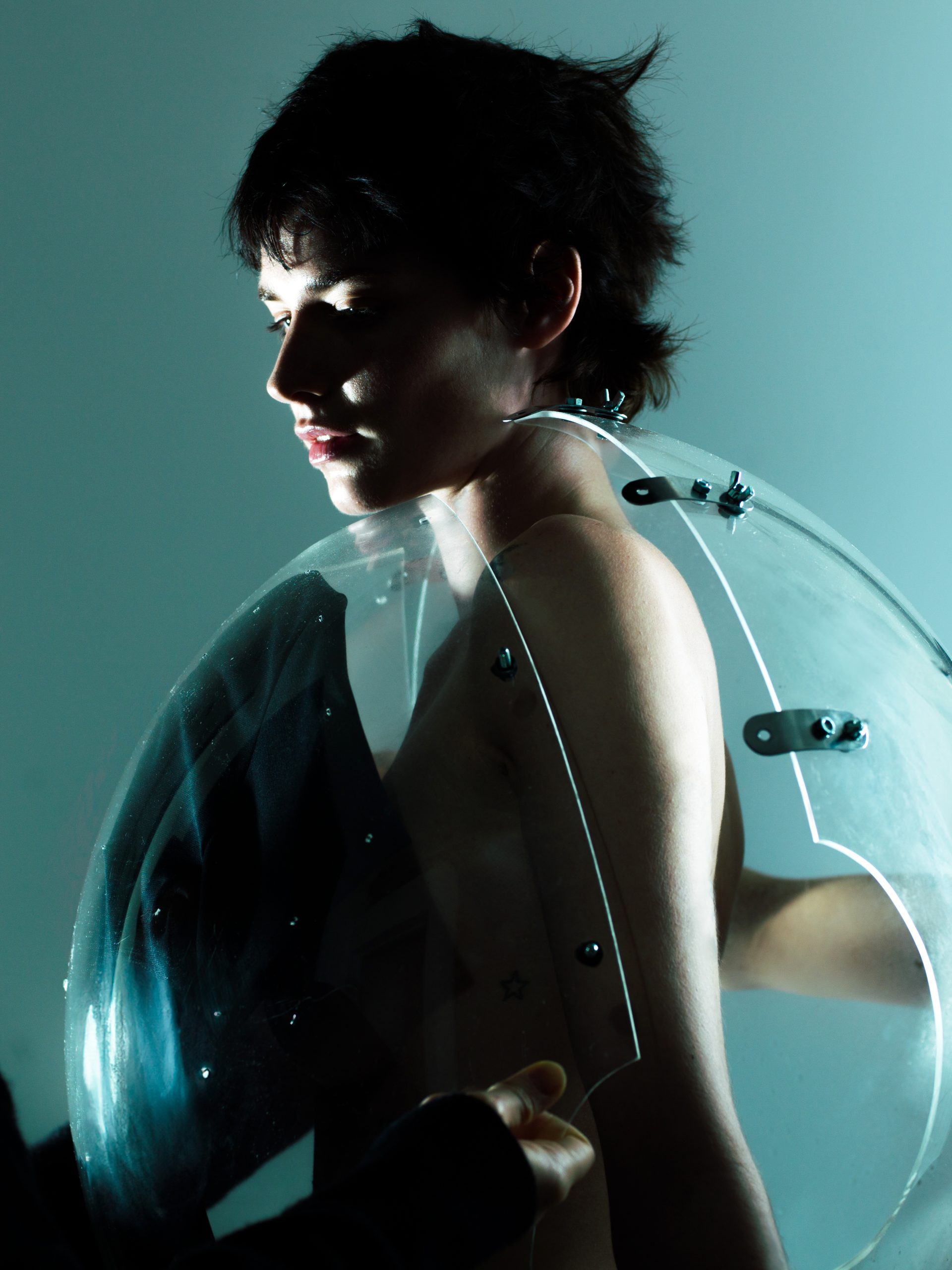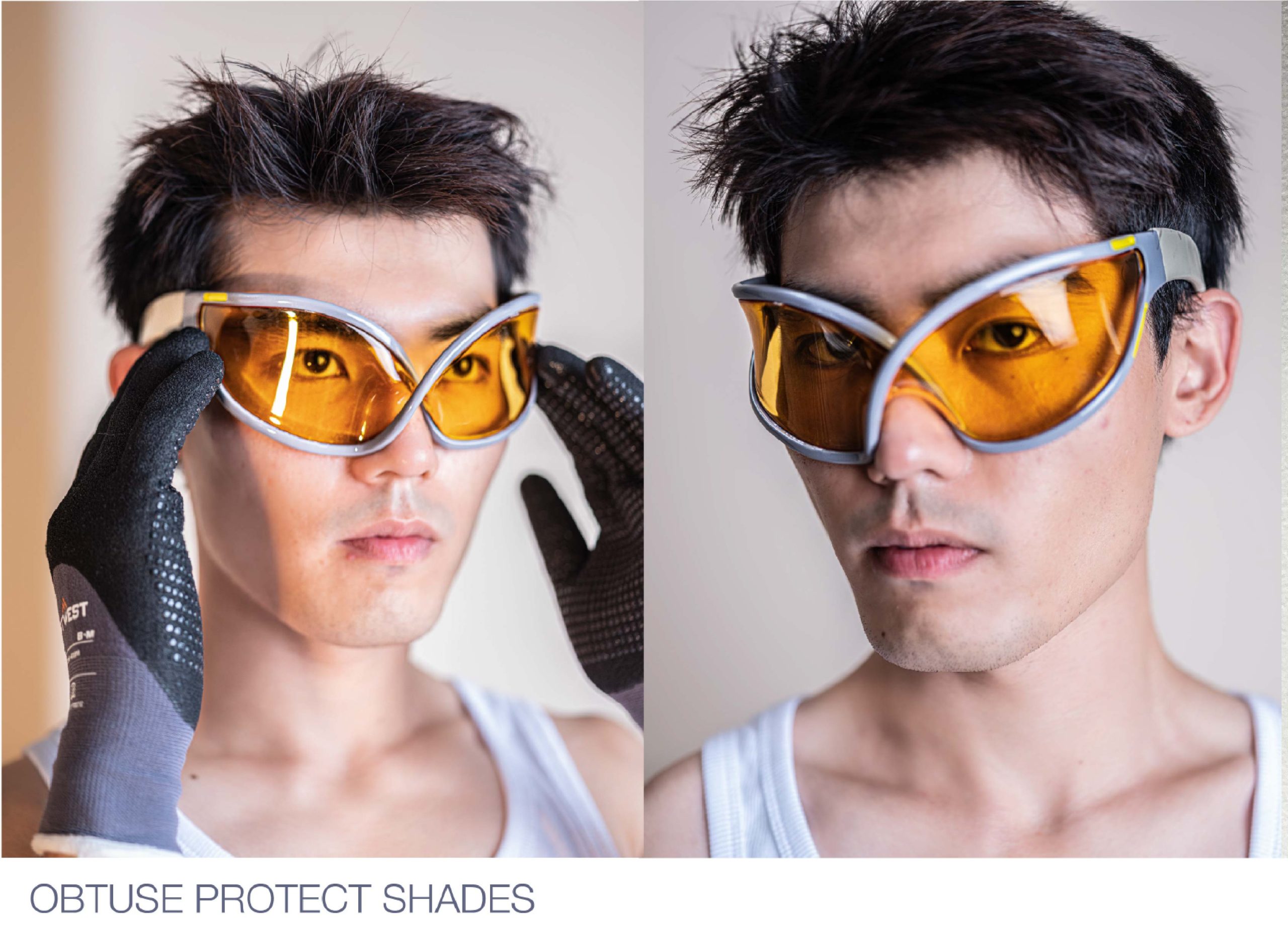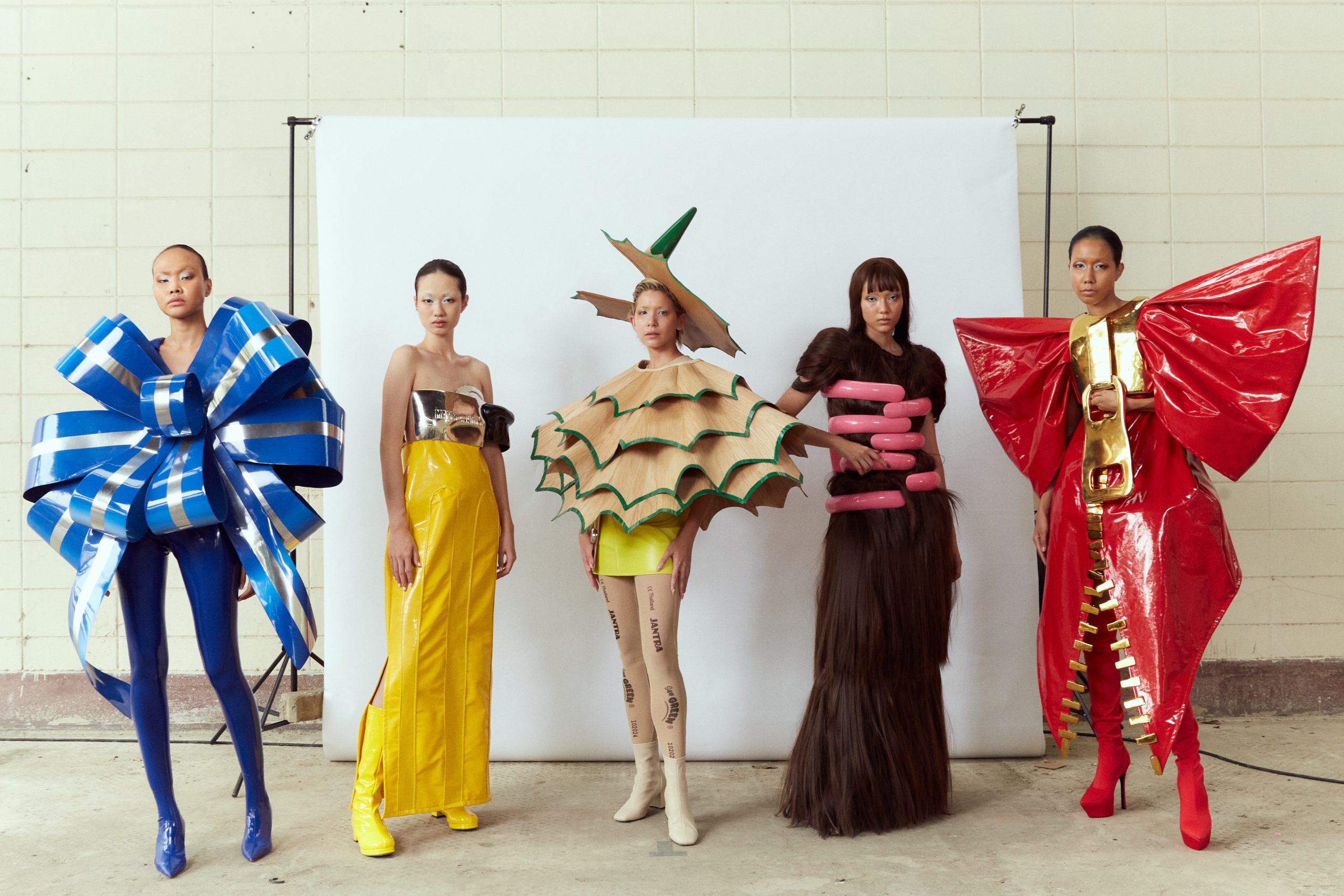Seoul, the vibrant capital of South Korea, poised to become the next emerging fashion capital to watch out for. Its rise is intimately tied to the global sensation known as Hallyu, encompassing Korean art, music, drama, food, and more. Through the power of our digital age, Hallyu has transcended geographical boundaries, transforming micro trends into worldwide sensations. GLITCH explores how our era of digital media, along with the Seou-lification effect, has paved the way for Seoul’s ascent in the fashion industry.
Cultural influence goes beyond fleeting trends. Political prowess and impact are not solely defined by military dominance. South Korea has harnessed the power of soft influence to elevate its global reputation. Hallyu, also known as the Korean Wave, has captivated audiences around the world, with K-pop and K-beauty at its forefront.
What once was a niche movement confined to a specific geographic region has now blossomed into a worldwide phenomenon. Proof that social media has played a pivotal role in accelerating Hallyu’s reach, allowing trends to resonate with millions worldwide.
With the meteoric rise of contemporary K-drama and K-pop since the 1990s South Korea’s fashion culture has experienced an extraordinary evolution in parallel. Think about the “hanbok,” a traditional Korean garment that has endured for centuries. Encompassing a fitted jacket (jeogori), trousers (baji), and a bell-shaped skirt (chima), adorned with vibrant colors that harmonize with the ancient Korean color theory of the five elements (Obangseak): a yin-and-yang balance expressed through white, black, blue, yellow, and red hues.
In 2020, BLACKPINK’s highly anticipated comeback single, “How You Like That,” showcased the group donning embroidered, cropped hanbok-inspired jackets in their music video. The resurgence of interest in hanbok among today’s youth is both generational and a reflection of the transformative designs offered by innovators like Tchai Kim.
“Through K-drama and K-pop, we have witnessed a new era of hanbok, where it is no longer perceived as a traditional, nationalistic, or mundane costume, but rather something vibrant and alive,” proclaims Dr Rosalie Kim.
Experience “Hallyu! The Korean Wave” come to life at the Victoria and Albert Museum—a mesmerizing spectacle. Closes Sunday, 25 June 2023 at the V&A South Kensington.
Idol styling aside, there is a broader movement embracing older aesthetics, the “neutro” trend. Merging elements of the “new” and the “retro,” this trend has witnessed a newfound appreciation for vintage clothing and items from the vibrant decades of the 80s and 90s, captivating the typically future-focused Korean youth culture.
K-dramas like the “Reply” series have played a pivotal role in fuelling this trend, with the final episode of the latest season set in 1988 during the Seoul Olympics achieving record-breaking viewership.
The boundaries of tradition and innovation are being redefined. With the hanbok’s dynamic revival and the captivating allure of the neutro trend, the West has been captivated by the audacious spirit and cultural magnetism emanating from Korea’s fashion landscape. As a direct consequence of Hallyu’s global influence, The Seoul-ification effect transformed Seoul into a hub for collaboration and innovation within the fashion industry.
Luxury brands have taken notice of the city’s rising prominence and are increasingly embracing Korean influencers, hosting events, and launching exclusive collections in Seoul. This trend is exemplified by notable collaborations and brand partnerships. Burberry, traditionally a British heritage brand, appointed Korean footballer Son Heung-min as an ambassador, showcasing the growing influence of South Korean culture in fashion. Similarly, high-end fashion houses like Louis Vuitton, Chanel, Dior, Valentino, Givenchy, and Gucci have enlisted popular Korean idols such as Jimin, Suga, Jennie and Lisa and different influencers such as IU as their ambassadors, amplifying their global reach and tapping into the immense popularity of these figures.
Luxury Fashion Houses are bringing together creatives from the Korean industry together to create waves in the fashion industry. Louis Vuitton’s Pre-Fall 2023 Show took place in Seoul where the creator and director of the popular Netflix Show Squid Game, Hwang Dong-Hyuk created the immersive and stunning set. For Gucci’s Cruise 2024 Collection held at the historic Gyeongbokgung Palace in Seoul, illustrations by local artist Ram Han were showcased while the music was written and performed by Jae-il Jung from Squid Game.
Korean idols, such as members of the globally acclaimed groups BTS and BLACKPINK, have become powerful trendsetters. Their impeccable style choices and fashion-forward looks quickly permeate the industry, prompting fans worldwide to emulate their fashion choices. Whether it’s a particular outfit, accessory, or beauty product, the merchandise associated with these idols swiftly sells out, testifying to their undeniable global influence.
Luxury brands recognize the impact of collaborating with these idols, as their association can instantly elevate a brand’s prestige and desirability.
GLITCH reimagines Seoul’s emergence as the next fashion capital as inevitable. The city’s rich cultural heritage, coupled with the unprecedented global success of Hallyu, has set the stage for a fashion revolution. The influence of Korean idols, the widespread adoption of Korean beauty and fashion trends, and the collaborative efforts between luxury brands and Korean influencers all contribute to the city’s rising status. Seoul offers a distinct fusion of tradition and innovation, making it a breeding ground for edgy and futuristic fashion. As the world becomes increasingly interconnected, Seoul’s influence will only continue to grow, solidifying its place as the next fashion capital to watch out for.
Written by Fernanda from GLITCH Magazine
Edited by GLITCH Team
If you want to learn more Dive into the Hallyu wave and unravel the captivating story of Korean pop culture in the V&A’s online course





